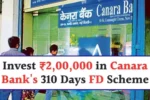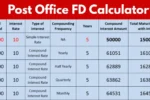The Social Relief of Distress (SRD) grant, introduced by the South African Social Security Agency (SASSA) during the COVID-19 pandemic, has been a lifeline for millions of unemployed and vulnerable South Africans.
As 2025 approaches, the future of the SRD grant is under the spotlight. While it has provided essential support for several years, SASSA and the government are now considering new approaches to ensure sustainable social assistance for those in need.
Current Status of the SRD Grant
Since its inception in 2020, the SRD grant has been extended multiple times, with the most recent extension allowing payments to continue until March 2026. The 2025/26 budget allocated approximately R35.169 billion for this purpose. Despite these provisions, long-term sustainability remains a concern, prompting discussions about alternative social support mechanisms.
Proposed Alternatives and Transformations
SASSA and policymakers are exploring ways to transform the SRD grant into a more sustainable form of assistance. One prominent proposal is the introduction of a Universal Basic Income (UBI), which would provide a fixed monthly payment to all citizens, regardless of employment status. The UBI concept aims to reduce poverty and inequality while providing predictable support to all recipients.
Another initiative under consideration involves offering lump-sum payments to SRD grant recipients who wish to start small businesses or entrepreneurial ventures. This approach encourages self-sufficiency and provides opportunities for economic participation, particularly among young and unemployed South Africans.
The following table summarizes the key options being discussed for the SRD grant’s future:
| Option | Description | Potential Impact |
|---|---|---|
| Universal Basic Income (UBI) | Fixed monthly payment to all citizens, regardless of employment status | Reduces poverty, predictable support, high cost |
| Lump-Sum for Entrepreneurship | One-time payment to start small businesses or ventures | Encourages self-sufficiency, promotes local economy |
| Phased Grant Reduction | Gradually reduce SRD payments while introducing other support programs | Maintains support while easing budget constraints |
| Full Termination with Alternatives | End SRD grant completely and provide alternative welfare programs | Cost-saving but may increase vulnerability |
Challenges and Considerations
While proposals such as UBI and entrepreneurship payments are promising, they come with challenges. Implementing a UBI would require substantial funding and careful planning to avoid inflationary effects.
Lump-sum payments may encourage business creation but could also carry risks if recipients lack entrepreneurial experience. SASSA emphasizes the need for a thorough review of the social grant system to ensure any new model is sustainable and effective.
Conclusion
As the SRD grant’s expiration approaches, SASSA and the government are actively exploring options to transition beneficiaries to more sustainable forms of support. Whether through Universal Basic Income, entrepreneurial incentives, or phased adjustments, the goal is to continue providing financial relief while promoting long-term economic participation. Beneficiaries and stakeholders should stay informed and engaged as these plans develop.




